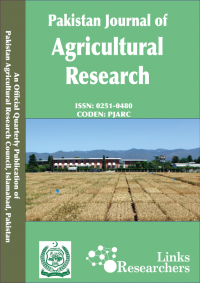IMPACT OF AGRICULTURAL TRADE LIBERALIZATION ON INCOME INEQUALITY IN PAKISTAN
Muhammad Aamir Khan*, Abdul Saboor*, Rauf-i-Azam**, Abdul Qayyum Mohsin* and Fayyaz-ul-Hassan***
ABSTRACT
Trade liberalization has long been recognized as a key element in sustainable development. Liberalized Trade has been adopted by many developing countries to increase economic growth and therefore reducing poverty. In this backdrop, the current study evaluates the impact of Pakistan’s agricultural trade liberalization using a modified Global Trade Analysis Project (GTAP) framework. The newly developed MyGTAP program was used to modify the Pakistan’s data in the Global GTAP Database and Standard GTAP model to include multiple households and labor types. This disaggregation allows to analyze distributional impacts and to implement policy scenarios that target particular households. The economy wise results showed that agricultural trade liberalization increases income inequality and somewhat detrimental to the rural household types, who guage most of their income from agricultural business. Trade policy must be pursued keeping derivation and distributional narration in view.
To share on other social networks, click on any share button. What are these?






